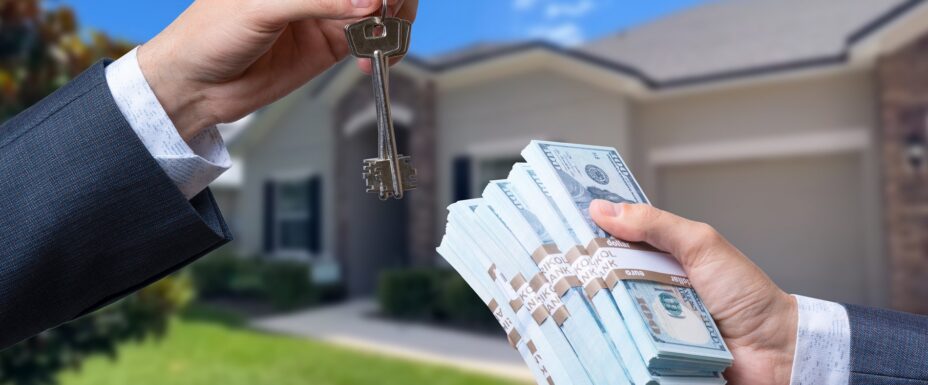What Happens When You Sell a 1031 Exchange Property?
Reviewed by: Brandon Brown
Updated Dec 12, 2024
As a real estate investor, you’re always on the lookout for ways to maximize your returns. But like any other industry, loss can be expected, some of which may come in the form of taxes. When selling a real property, the government will tax what you’ve earned from the sale of the home, also referred to as a capital gains tax.
But, how about if the property was passed down to you? Do you pay capital gains tax on inherited property? If you plan to sell it, then yes, you are still required to foot the capital gains tax. However, is there a way around this? If you are posing the question, “How can I avoid capital gains tax on a home sale?”, we’re here to give you the 411 on one specific loophole. One powerful tool at your disposal is the 1031 Exchange, which is outlined in Internal Revenue Code Section 1031. So, what is a 1031 exchange property? Also referred to as a like-kind exchange or starker exchange, a 1031 exchange allows you to defer capital gain taxes on the sale of an investment property by using the sales proceeds to purchase another like-kind property. For example, if your investment in a condo is depreciating in value, you can use the net proceeds of the sale of the condo to exchange it for a replacement apartment complex.
The sale of a 1031 exchange property must be done properly, or it could nullify your tax deferment. Below, we’ll review what happens when you sell a 1031 exchange property so you can ensure that your sale and simultaneous exchange go off without a hitch.
The Steps Involved in the Sale of a 1031 Exchange Property
Before you sell a 1031 exchange property, it’s important to understand the steps involved in the exchange process.
Here’s what you’ll need to do during the sale and exchange:
Step 1: Find a qualified intermediary
A qualified intermediary (QI) is someone who holds the proceeds from the sale of your original investment property and transfers them to the seller of your potential replacement property. Since you technically never receive the funds from your sale, you can defer capital gain taxes on them (this is a process of tax-deferred exchange).
Step 2: Sell your 1031 exchange property
After selecting a QI, you can put your investment property up for sale and wait for an adequate offer. If both parties agree on the conditions of the home sale, you can then draft an exchange agreement with the QI.
Step 3: Identify replacement properties within 45 days
As soon as you close on the sale of your investment property, you have 45 days to find a potential replacement property. It’s a good idea to identify multiple replacement properties. You never know if your first choice will fall through or take too long to close. Don’t forget to share your replacement property information with your QI in writing so they can disclose it to the IRS.
Step 4: Close on your replacement property within 180 days
After the sale of your original investment property, you only have 180 days to close on its replacement. 180 days can go by fast, so don’t dawdle during this process. If you haven’t closed on the replacement property within 180 days, you will no longer qualify for tax deferral.
Step 5: Report your 1031 exchange to the IRS
Once your 1031 exchange is complete, you must report it to the IRS using form 8824. If you successfully follow all of the 1031 exchange rules involved in selling your original property, you can multiply your wealth without factoring in Uncle Sam’s cut— at least until you officially cash out on your real estate investment.
The 1031 exchange is not your regular buy-and-sell transaction. There are additional papers to file, requirements to submit, exchange agreements to review, and deadlines to beat. As 1031 exchanges can be complex, you should enlist the help of a qualified tax or legal professional every step of the way.
How Soon Can You Sell a 1031 Exchange Property?
If you’re a savvy investor, you may want to use multiple 1031 exchanges before you finally cash out on your real estate investment. You are entitled to do so. In fact, you can use as many as you want, as long as you follow all of the 1031 exchange rules and regulations.
However, many real estate investors wonder if there’s a specific holding period you must go through before pursuing another 1031 exchange. The short answer? It depends.
Many tax experts recommend holding onto your new property for at least one year before selling it to pursue another 1031 exchange. However, what ultimately matters is your intent.
The Importance of Intent in 1031 Exchanges
When it comes to the 1031 exchange process, if you can’t prove to the IRS that your 1031 property was purchased as investment real estate, you may not receive your capital gains tax deferment.
As a result, it’s important to hold onto your 1031 property long enough to compile sufficient evidence that it truly was used as an investment property, rather than a personal primary residence or residential property intended for a fix-and-flip project.
By waiting at least one year before swapping your 1031 property for another investment property, you’ll have the documented tax history to back up your assertion.
Selling a 1031 Property To Cash Out
Say you can’t find an adequate replacement property, or perhaps the one you chose didn’t close within the 180-day mark. In those cases, you can also sell your 1031 property without pursuing another 1031 exchange.
Cashing out on your 1031 old property and paying its capital gains tax is always a valid option. It can enable you to invest in other types of assets or simply enjoy more financial liquidity. There’s still the relief that you can move on to a new property even if you weren’t able to get that much capital gain from your previous investment. The point is you no longer hold on to the old property.
If you’re ready to sell your 1031 exchange property and pay taxes on the exchange proceeds, you can calculate your taxes using Form 4797.
What If I Can’t Find A Replacement Property Within 180 Days?
So, what happens if you can’t find a replacement for the relinquished property within 180 days? The good news is there is a chance you can qualify for an extension, but make sure to file it within the exchange timeline, which starts when the relinquished property closes escrow. You can ask for an extension in the case of a delayed exchange or partial exchange.
Sell Your 1031 Exchange Property Faster With FlipSplit
Want to sell your 1031 exchange property quickly? Whether you’re pursuing another 1031 exchange or cashing out your original property, FlipSplit can help.
FlipSplit is an off-market cash home buyer and house-flipping company. Our competitive cash offers allow for a more efficient closing process, so you can sell your home fast.
Best of all, we’ll share our fix-and-flip profits with you after we renovate your property and sell it ourselves. If a 1031 exchange doesn’t work out as you originally anticipated, we buy houses in any condition, make enhancements, and split the profit with you. Learn more about our home-buying process today.






